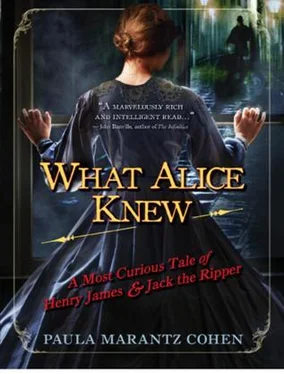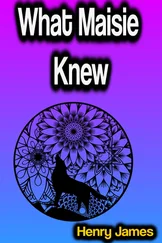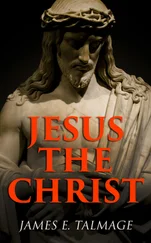Katherine felt it best to drop the subject. She would send Sally over to help in the kitchen, though Sally, who had just turned sixteen, could only do so much.
***
Alice had been preoccupied for several days with the question of what she would wear. She had feared at first that she had nothing and would have to resort to the dressing gown of the séance. But a bit of digging had located the black dress she had worn to her father’s funeral, and that could be made to look less funereal by removal of the material around the neck and the addition of a panel of pink and gray lace that Katherine found in a shop on Oxford Street. To this was added a set of pearls and black slippers. When she was finally done—dusted with rice powder, cheeks pinched, hair put up with a set of silver combs—she viewed herself in the large mirror in the sitting room and was so enamored of what she saw that she couldn’t take her eyes away. “It’s not that I look good,” she explained, “it’s just that I look so much better than I thought.”
Emily Sargent, who had come early to help her dress, said she looked beautiful, which Alice found annoying. “I don’t want to look beautiful,” she said. “I want to look normal. ‘Conventionally plain,’ for example, would be good. Or ‘rather ordinary.’ I’ve always felt like such a freakish sort of person, too pale, too weak, too odd in all respects. To pass for ordinary would be a wonderful change of pace.”
Katherine and Emily said she looked beautifully ordinary.
The carriage was finally called, and they got to Henry’s flat just as the other guests were arriving. The Sidgwicks were already present, chatting with William, when Vernon Lee came in with a strapping young woman in tow—it was like her to bring a guest without alerting her hosts. Katherine ran into the kitchen to tell Mrs. Smith to lay another setting.
“I’m Kit,” said the strapping young woman breezily, gripping Alice’s hand so tightly that she winced in pain.
“She’s one of the Anstruther-Thomsons,” said Vernon, as though this explained everything. “We’re working on a new theory of aesthetic philosophy.”
“Really?” said Alice. Kit Anstruther-Thomson looked more suited to fox hunting than aesthetic philosophy.
Everyone clustered in the hallway, waiting for someone to take their coats, until finally Mrs. Smith came out of the kitchen, her bonnet askew, and exasperatedly gathered them up.
By nine o’clock, when dinner was supposed to be served, everyone had arrived, with the exception of Sickert. The siblings looked at each other in consternation as they registered the possibility that he might not come, and the entire event—tiring, noisy, and expensive—would be for nothing. But at 9:15, he was announced. Was a murderer about to make his appearance?
Sickert entered the room. He had a sharp, fine-featured face; rather thin lips; a profusion of curly, light brown hair; and a wiry, agile physique. His eyes were even bluer than Henry remembered. He was wearing a tweed coat, yellow gloves, and a soft-brimmed hat and carrying a cane. He gave his hat and cane to Mrs. Smith, who curtsied as she took them (something Henry couldn’t help noticing that she never did for him), and then he walked directly to Henry to apologize for being late; he had been delayed at his studio, waiting for a canvas to be delivered. “My framer is not reliable,” Sickert explained jauntily, “but as we trained together and he does good work, I make allowances.” He winked at the company, as if to say that allowances often needed to be made for him .
Henry had been anxious about the encounter, less because Sickert might be a maniac than because of the incident with Clemens, which he felt obliged to acknowledge. “Thank you for saving my life the other night,” he muttered with some embarrassment.
Sickert did not laugh as expected. “You must take more care in the future,” he said seriously. “You were lucky you weren’t pummeled to death.”
Henry was taken aback. Did Sickert know something about Clemens’s boxing prowess that he did not? To deflect further discussion, he led his guest to his brother across the room.
William had been standing off to the side in a state of nervous anticipation. The thought that he was about to meet a man who might be the cause of four women’s brutal deaths, not to mention an attempt on his own life, made him shudder. But Sickert approached him with apparent ease and expressed praise for his writing. So he reads philosophy between his rampages , thought William sourly. He shook the hand offered, paying close attention. It was the right hand, he noted. The blow he had delivered with the branch in Hyde Park had been to his assailant’s left. There was no evidence of debility, but he couldn’t help wonder if Sickert was carrying himself a bit stiffly. Was it the theatrical posture or the stiffness born of injury? In all respects, the man seemed charming and easy—too much so, perhaps. Sociopathic personalities could be extremely congenial in ordinary settings.
“I am intrigued by your theories concerning the plastic nature of human character,” said Sickert with the casualness of someone at home with ideas. “I agree with your hypothesis that we can shape ourselves in any number of directions.”
“Shape ourselves within limits,” murmured William. “There are biological constraints, not to mention habits formed in early childhood that seem impossible to revise.”
“Yes.” Sickert nodded. “But such things can exist apart.”
“Apart?” asked William, looking at their guest inquiringly.
“Relegated to the private sphere…or to other corners of life.”
“I don’t know about that,” said William, furrowing his brow. “Certain impulses cannot be fully buried.”
“Oh, not buried,” Sickert corrected, “compartmentalized. What is acting, after all, but the performance of character, devised from the tool case of one’s experience and fashioned for a given occasion?”
“But actors assume a temporary mask that they put on and off. Don’t you believe in an essential character?”
“No,” said Sickert blithely. “Why should character be singular and not multiple? The latter is certainly more entertaining…and more convenient.”
“Isn’t it a function of art to provide an outlet for contending impulses?” queried William, who recalled how alive, though also how fraught with anxiety, he had felt during his early years as a painter.
“Admittedly, art serves this end to some degree,” agreed Sickert. “The painter dabbles in different styles; the actor and writer inhabit different characters. But there are impulses that cannot be contained by art, or at least not by art as we commonly know it. The true artist is one who finds an accommodation for his disparate impulses. The more original the impulses, the more ingenious he must be in the form he adopts.”
William blanched. The speech, which dovetailed with some of his own theories about the mutable nature of consciousness, struck him as sinister coming from the individual before him. Wasn’t murder an accommodating form for impulses that might not find a home elsewhere? He did not respond, and Sickert, sensing the conversation was over, nodded politely and moved away to chat with Sargent about the latest art club gossip.
Dinner was served. Mrs. Smith had paid no attention to the diagram, so the forks and spoons were in the wrong order. Mr. Smith, breathing heavily and limping (he had both asthma and gout), began pouring the wine from the right. The soup was brought in; it was tepid and was followed by trout that had not been properly deboned. Katherine felt obliged, for the purpose of safety, to warn the guests to be careful, and the prospect of bones in the fish immediately set Henry’s nerves on edge. He had once been at a dinner where an elderly gentleman had choked on a chicken bone, and the idea of a choking death in the presence of Jack the Ripper struck him as particularly infelicitous.
Читать дальше












